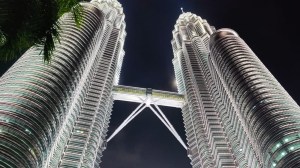Never got weapons-grade uranium from China: Pak
Pakistan dismissed a media report about Beijing providing it with weapons-grade uranium and a blueprint for an atomic bomb.
Pakistan on Friday dismissed a media report about Beijing providing it with weapons-grade uranium and a blueprint for an atomic bomb and described it as an effort to divert attention from support being extended by “some states” to India’s nuclear programme.
Foreign Office spokesman Abdul Basit described the allegations made in an article in the Washington Post newspaper as “baseless”. “Pakistan strongly rejects the assertions in the article that is evidently timed to malign Pakistan and China,” he said.
“This is yet another attempt to divert attention from the overt and covert support being extended by some states to the Indian nuclear programme since its inception and intensified more recently in stark contradiction to their self-avowed commitment to the Nuclear Non-Proliferation Treaty,” he said.
Pakistan and China have “comprehensive and all-dimensional cooperation”,which includes civilian nuclear cooperation for peaceful purposes,Basit said.
“This has always been above board. Pakistan and China have always respected their respective international obligations and non-proliferation norms,” he said.
Citing an account provided by disgraced nuclear scientist A Q Khan,the Washington Post reported on Friday that China provided Pakistan enough weapons-grade uranium for two atomic bombs and the blueprint for a simple nuclear weapon in 1982.
The report described the uranium transfer as “an exceptional,deliberate act of proliferation” by China under a “broad-ranging,secret nuclear deal approved years earlier by (Chinese leader) Mao Zedong and (Pakistani) Prime Minister Zulfiqar Ali Bhutto”.
The newspaper quoted unnamed US officials as saying that they had known about the transfer for decades and once privately confronted the Chinese,who denied it.
The US officials were also worried that Khan later shared Chinese design information with Iran and Libya. Khan was placed under house arrest after he confessed to running a clandestine proliferation ring in early 2004. Pakistani courts eased restrictions on his movements last year though Khan remains under the surveillance of security agencies.
Photos



- 01
- 02
- 03
- 04
- 05




























